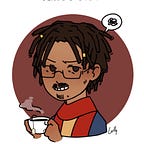After the protests and violence in Charlottesville, which left one woman dead and multiple people injured, a new twist on an old conversation began to take shape; one in where lines were drawn in the sand against the evil aspects of white supremacy and nazism.
The latter is the interesting part. Yes, there were Neo-Nazis present at Charlottesville looking for a fight, as were white supremacists. They have some shared interests, so this isn’t surprising. What is surprising is that the word Nazi has soared in usage since the violence, in an attempt to paint those that stand with the views of the Nazis or Neo-Nazis, or white supremacists, as a demonstrable other.
Business wise, nobody wants to be associated with nazism, and so we saw a number of white supremacists whose faces were caught on camera and their personal information released online for the world to put a name to a snarl. Because of this association with nazism, some of these men lost their jobs and can be seen crying on camera about how hard the world is on them. Insert joke about small violin.
But I take umbrage with the usage of Nazi, especially when referring to homegrown white supremacy. In part because of specifics (i.e. Nazis have a very clearly defined ideology), but mostly because we’re spending too much time creating an Other.
By equating the white supremacists in Charlottesville, or any number of the hundreds of non-nazi groups spread out across the country, with Nazism, we’re playing a game of racial hot potato where blame is assigned elsewhere (and I’m using the royal we). Simply put, by assigning these white supremacists as nazis, the white people of this country are shifting the blame and the focus away from topics like white complicity, white silence, and the myriad of ways white supremacy manifests in this country before armed militias and rebel flags.
The KKK is obvious, but things like police brutality, the prison-industrial complex, victim blaming, hiring and housing discrimination, gerrymandering, gentrification, denial of white privilege, etc., are all examples of white supremacy that continue to float in this society. White supremacy is being silent and doing business with an individual with racist views because of their societal position or because you want to do business with them. White supremacy is not confronting a family member for saying something racist and instead staying silent.
The more (royal) we refer to white supremacists in this country as Nazis, the more white individuals create a barrier between their silence and complicity and overt white supremacist violence. You make a monster to distance yourself and by framing this as an “Us versus Them”, this country is missing out on an important conversation that it’s still not having.
This can be seen in the most recent Saturday Night Live Weekend Update sketch featuring Tina Fey. In the sketch, Fey argues that instead of counter-protesting white supremacists, people should patronize a bakery or two and eat cake. She also found time to throw in a joke about how physically intimidating black men are. What makes this sketch problematic, among others, is that Fey believes that white supremacists are somehow distinct from her and her situation; that she has no personal responsibility in what they do or how they believe or behave, and if ignored, will go away.
Fey does not argue that she and other white people should use this wake up call (the last of many) to examine their relationship to white supremacy. Instead, she colors the white supremacists as inept losers who would be destroyed if only the “majority” got together to crush them.
There’s some good to the idea of self care, but it’s disingenuous for Fey, a white woman, who should be using her platform to address these issues head on (especially considering her own issues with race in her shows) by discussing her complicity and ways to address it in the future, to instead suggest to millions of people they should, instead, eat cake.
Disingenuous because it’s a special kind of privilege to believe that white supremacists, armed and emboldened by a country that allows them to exist at worst and gleefully engage in their ideology, aren’t dangerous if you leave them alone, mainly because Tina Fey isn’t a target of white supremacists. People of Color are and while we discuss things about how (royal) our grandfathers fought in WWII to stop Nazis, white supremacists at home were lynching black people, setting up anti-black legislation and policy and a whole host of white supremacist doctrine that was officially adopted into law that remains today.
And if we’re not going to collectively acknowledge the United States’ personal role in the rise of German Nazism, we should keep focus on this country’s responsibility in furthering and benefiting from white supremacy. George Washington was a white supremacist, Thomas Jefferson was a white supremacist; they weren’t Nazis.
But I get it — Nazis are a fun enemy to defeat in video games where you can shoot off their heads with impunity because they are a short hand for the most evil type of person in history. But using this short hand allows this country to separate itself and its atrocities. Nazis are villains, but they’re needed in discourse because otherwise we acknowledge the complicity and have to change or stay complicit. By using Nazi we allow ourselves the conversation, but a safer version, one that doesn’t require a greater sacrifice of self. People can at least say, “I’m not a Nazi” and feel good about themselves for taking what is essentially the racist version of an open book quiz. But there’s real work to be done; otherwise we’ll be back on the carousel making the rounds again.
